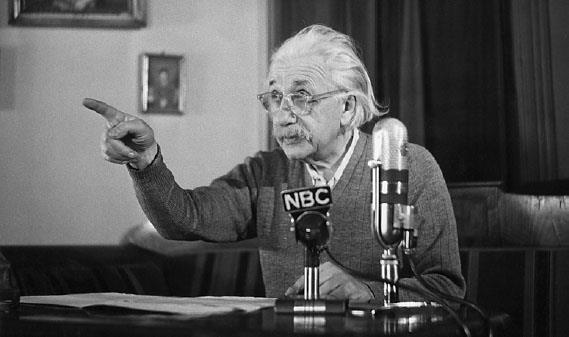The BasicsFamous Physicists |
Who would become the most influential scientist of the twentieth century? |
On March 14, 1879, Albert Einstein was born in Ulm, Germany. No one knew that this little boy would one day grow up and change the way people viewed the laws of the universe. Albert was a top student in elementary school where he built models and toys and studied Euclid’s geometry and Kant’s philosophy. In high school, however, he hated the regimented style and rote learning. At age sixteen he left school to be with his parents in Italy. He took, but failed, the entrance exam for the Polytechnic University in Zurich. After a year of study in Aarau, Switzerland, he was admitted to the University. Four years later, 1900, he was graduated.
He spent two years searching for a job and finally became a patent clerk in Bern, Switzerland. During the next three years while working at the Patent Office he developed his ideas about electromagnetism, time and motion, and statistical physics. In 1905, his so-called annus mirabilis or miracle year, he published four extraordinary papers. One was on the photoelectric effect, in which Einstein introduced light quanta, later called photons. The second was about Brownian motion, which helped support the idea that all matter is composed of atoms. The third was on special relativity, which revolutionized the way physicists understand both motion at very high speeds and electromagnetism. The fourth developed the famous equation E = mc2. While these papers completed his Ph.D. requirements, it was two years before he was appointed a professor at the German University in Prague.

